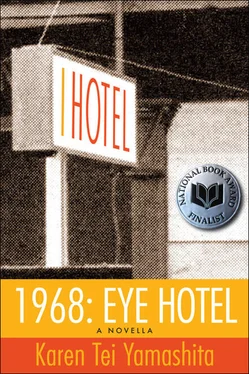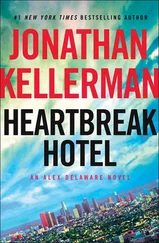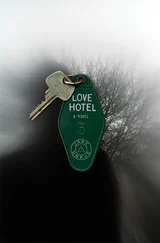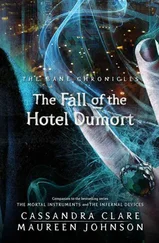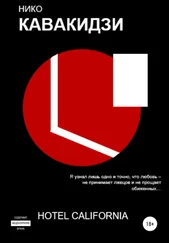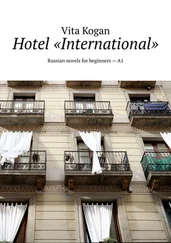Suddenly, he senses a presence at his side. Someone has jumped into the Cad. “They are going to stop at the Benevolent Association first, next the newspaper office, then at your apartment.”
Paul looks at the man whose agile body leaped into the moving car.
“I know this is highly irregular, but I thought you could use some company.”
Paul nods behind the photo, sucks in his breath. Got to get his composure back.
“I’m Chen Wen-guang,” says the agile man. “Friend of your father.” He nods at the photo. “He would hate all this”—he looks around at the spectacle, “but—”
Paul finishes the thought: “It’s irrelevant when you die in Chinatown.” He notices Chen’s white gloves. So he’s one of the pallbearers.
Chen smiles. “He always said you were a smart kid.”
The procession comes to a halt. Rest stop: Benevolent Association. His dad’s ghost is halfway to heaven. Time to pay his last respects, eat some boiled chicken, a bit of steamed bun, maybe take a banana for the trip.
“We’ll talk again later, I promise.” Chen jumps out into the street, again like an acrobat. “What did you put in that casket with your dad? It’s really heavy.”
Two more stops: the newspaper office on Clay Street and their apartment around the corner on Commercial. Auntie’s planted someone there to open the doors, make sure Paul’s dad gets a good last visit, then shoo his ghost out. The doors on the back of the hearse get flung open. The mortuary director pulls out a wreath of flowers and stands at attention. The brass band plays another Salvation Army tune.
Finally they get to the edge of Chinatown. They might be a band of old white guys, but the edge of Chinatown is their limit. It’s also the limit for the Cad. Paul gets out and sits shotgun in the hearse with a burning cigar of incense. A motorcycle escort takes over. It’s not that Paul has never left Chinatown, but it’s always foreign out there. Chinatown’s his citadel. But when you die, your bones got to travel thirteen miles south outside the city to the Chinese Cemetery in Colma.
As Paul speeds away from Chinatown with his dad’s spirit and favorite things, the boys in Vietnam are battling each other through the streets of Hue, house by house, block by block, hand to hand. Boys got to charge into buildings tossing grenades and wipe out the enemy room by room, meter by meter. Citadel’s a concrete stonewall maze, sort of Old World castle city that American boys never seen back home. Center is the Imperial Palace of Peace, surrounded by a city maze of side-by-side stone houses of the clergy, commoners, and bureaucrats. Boys got to put up the flag at the Palace to show they won the battle, but first they got to get the tanks in there with special concrete-piercing shells to blow out the thick walls, got to destroy ten thousand houses and forty percent of the city. Vietnam boys got their own map of trenches and tunnels and sniper positions; time being, it’s their citadel.
Paul stares into the pit at the coffin, throws in his black armband and his black waistband. It peels away from his waist like a thick skin, exposing his guts for one horrific moment; then suddenly, the tension in his abdomen recedes. No one notices, it seems. Bow ties and white gloves flutter down to the casket. Once again, almost mysteriously, the agile friend of his father, Chen, is at his side; he, like the other pallbearers, tosses his bow tie and gloves, and now his ungloved hand rises to Paul’s shoulder. Paul wants to cry out, but he cannot. Everything gets pushed down deep. He’s still trying to hear, through the fireworks, his dad’s last words. There’s nothing but the soft din of juniper and flowers pelting dark wood.
Far as any outsider can tell, on the one side it’s American boys and Vietnam boys dying. On the other side, it’s just Vietnam boys dying. ARVN/U.S. versus NVA/VC. Fighting’s fierce, but the ARVN/U.S. have the advantage of their technology, the superiority of aircraft and artillery. To save lives and win the city, we shell and bomb the sacred history of Hue back to the Stone Age. Six thousand residents die in the rubble and one hundred and twenty thousand wander homeless. In retaliation, sacred history is replaced by sacrilegious history: they massacre the enemies of the state, the government officials, the sympathizers, and the Catholics; pop them off in mass graves, three thousand human lives, Vietnamese rounded off to the thousand. Meanwhile, inside the city Citadel, maggots ooze through the strewn corpses, anonymous piles of sons and daughters, mothers and fathers, spouses and lovers, rats and rabid dogs feasting on their bloated corpses, a fog of stench escaping the crumbling maze, groveling in pity at the perfumed moat.
A week later, Auntie calls and says, “We go to Colma for Ching Ming. This year it’s April fifth. It’s a Friday, so you come to my house after school. Don’t worry. I’ll get everything ready, but you pay attention. One of these days it’s going to be your responsibility. You got to do this for your mother and father. For your grandfather. I say to my kids, don’t let us down, especially when we’re dead.”
Night before Ching Ming, MLK Jr. is standing on the balcony of the Lorraine Motel in Memphis, Tennessee, gets shot through the neck. Next day, the flags are all at half mast. School’s abuzz. They’re rioting in DC, in Chicago. What’s gonna happen here in SF? The Panthers over in Oakland calling for keeping the peace. It’s not the time to go to the streets. What you want? A bloodbath? They’re pretending they’ve got everything under control. Don’t know that Eldridge Cleaver’s yet to see his soul on ice and Bobby Hutton’s young years got to be cut short.
Once again Paul’s in a car driving to the Chinese cemetery, squeezed between Auntie and her kids and grandkids. Car smells like roast pig and jai choy. Cousin playing Sly and the Family Stone on the local channel. No assassination’s going to interfere with Chinese tradition. “Better to go to Ching Ming, get outside the city,” Auntie justifies. “Ancestors know better. Get outside the city.”
“But what about on the way back?”
“We take safe streets. Inside Chinatown, no trouble. Here,” she says, passing a box of pork bao. “I got extra for you. You must be hungry from school. Are you eating? You didn’t come last week for dinner. What happened?” She nudges him. “Got a girlfriend?”
Paul’s mouth is filled with bread. “Huh?”
“It’s O.K. Forty-nine days are past. You can go back to your party life.”
“Thanks, Auntie.”
At the cemetery, other Chinese already there for the Clear Brightness Festival. Auntie becomes central command, moves her troops into action. Every kid’s got a job. Sweep, rake, pick out the dead leaves, dump the old flowers, make a nice arrangement of new flowers. Stick the red candles in the soft dirt, get them lighted. Make a spread and it’s a feast. Center attraction is the suckling pig’s head looking all tanned and glazed. Contrasting is a whole white boiled chicken. Then the sautéed jai choy and dim sum. Auntie throws in a boiled egg, an orange, a banana, and an apple. Ancestors get three bowls of rice, three cups of wine, three cups of tea, and three pairs of chopsticks.
Paul has to light the incense bundle. “Don’t blow on the fire,” Auntie warns. “Bad luck.” She fans the fire with a newspaper.
One of the kids is holding on to a bag of kitty litter. Auntie rips open the bag. “This is my invention,” she says proudly. “Works good, you know.” She pours the kitty litter into a can and demonstrates how the litter is going to hold up the incense sticks. What’s tradition if you don’t improve on it? It’s also a good bed for burning the joss papers and the otherworld money. Next time the house’s on fire, run to the kitty litter.
Читать дальше
